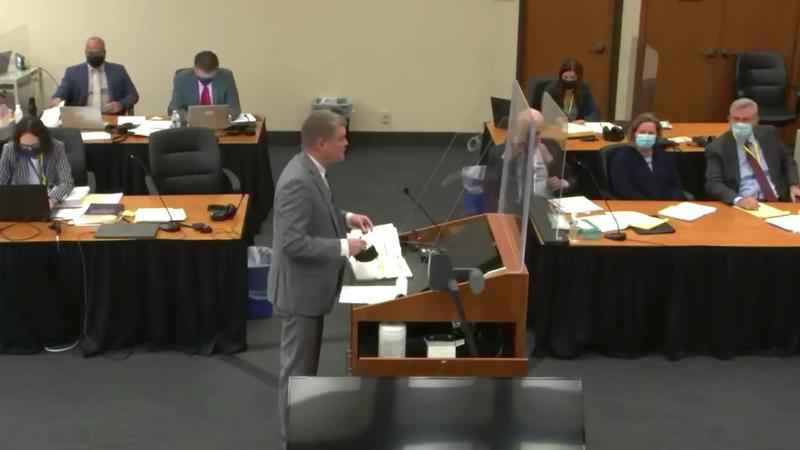Legal analysts break down what to expect during opening statements in Potter trial
Testimony begins Wednesday in the trial of former Brooklyn Center Police Officer Kimberly Potter. Opening statements are scheduled to begin at 9 a.m.
"The opening statement I really want to listen for is the prosecution’s [opening statement]," said Mark Osler, a law professor at the University of St. Thomas. "The defense, I think they’ll say it was a mistake, and she didn’t intend to shoot anybody. But for the prosecution, the challenge for them is explaining the charge because it’s complicated, especially the first-degree manslaughter charge. How they explain that she was reckless is going to be really important."
Potter faces two felony counts: first-degree manslaughter predicated on reckless use/handling of a firearm and second-degree manslaughter.
"The second-degree manslaughter is consciously making the decision to do something that creates a risk, and it’s odd language because it’s that conscious decision that the jurors might get hung up on," said Osler. "Potter is going to say I didn’t make a conscious decision, I made a mistake, and that is different. The first-degree manslaughter talks about recklessness, and we’ll see how the jury instructions pan out on that in terms of describing what level of consciousness is needed."
Jury instructions provide an explanation of the panel’s duties, the charges and what is considered evidence.
On Monday, Judge Chu worked through the jury instructions with the state and the defense. Last month, both legal teams filed proposals for what they’d like to see included in the document.
The meeting started behind closed doors. When they resumed discussion in the courtroom, the state did not offer any objections to the Judge’s decision on the instructions. However, Potter’s attorney Paul Engh raised several objections to Judge Chu’s rulings.

In this screen grab from video, Assistant Minnesota Attorney General Matthew Frank, center, questions a potential juror as Hennepin County Judge Regina Chu presides over jury selection Friday, Dec. 3, 2021, in the trial of former Brooklyn Center police Officer Kim Potter at the Hennepin County Courthouse in Minneapolis, Minn. Potter is charged with first- and second-degree manslaughter in the April 11 shooting of Wright, a 20-year-old Black motorist, following a traffic stop in the Minneapolis suburb of Brooklyn Center.[Court TV]
Among its requests, the defense asked for additional language regarding culpable negligence and alterations to how reasonable force is defined.
The proposal from Potter’s team also included a section about Wright’s negligence, which the Judge denied. Judge Chu said, "Allegations of what Mr. Wright should or should not have done can come out during testimony. They don’t belong in the instructions. Any reference to Mr. Wright’s negligence would only tend to confuse the jury."
The Judge acknowledged some of the instructions would be finalized after some testimony.
"I think the judge in this case, […] she’s going to give some initial instructions and then she’s going to give more at the end," said Lee Hutton, an experienced Twin Cities trial attorney unaffiliated with this case.
During the trial, the jury will likely hear from Potter. She told Judge Chu last week that she plans to testify. The defense has also submitted a list of 18 other potential witnesses, including former Brooklyn Center Police Chief Timothy Gannon.
"What I anticipate is he’s going to support this innocent mistake theory of Kimberly Potter," said Hutton. "He also is going to lend some credibility with regard to the procedures, with regard to the type of officer Kimberly Potter was."
The state has 48 witnesses on its list, including Daunte Wright’s father.
Hutton expects prosecutors will call its witnesses in stages, although it’s unlikely we’ll hear from all of them.
"The first stage is policies and procedures," said Hutton. "The second stage is going to be whether or not there was a breach of the procedures and then another stage is going to be who Daunte Wright was, and that’s where the family members come in. The defense with their 18 witnesses, I think they’re going to do kind of the same with stages. […] In opening statements, be prepared to see the prosecution and the defense go through each witness, at least the important ones, giving a preview of what they’re going to testify to.
Think of it as a trailer before watching a movie, and that’s what they’re going to give the jury."
Hutton expects the prosecution could take a couple of hours on its opening statement to ensure the jury really understands the two charges. After that, the defense will likely go more quickly and will highlight Potter’s testimony.